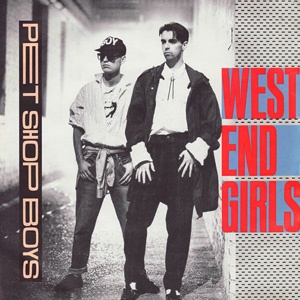“West End Girls” is a song by the British synth-pop duo Pet Shop Boys, consisting of Neil Tennant and Chris Lowe. It was first released in April 1984 and then re-recorded and re-released in October 1985 with “A Man Could Get Arrested” on the B-side. The latter version became an international hit, reaching number one in both the UK and the US. In March 1986, the song was included on Pet Shop Boys’debut album, “Please”.
“West End Girls” was written by Neil Tennant and Chris Lowe. The initial inspiration for the song came from Grandmaster Flash and the Furious Five’s track “The Message,” which featured a rap style and social commentary. Tennant and Lowe wanted to create a song that combined the electronic music they loved with a similar sense of urban storytelling. The song’s production was handled by Stephen Hague for its successful 1985 re-release. The 1984 version was produced by Bobby Orlando, a New York-based producer who was pivotal in bringing the Pet Shop Boys’ music to a wider audience. However, the later version with Hague’s production is more polished and is the version that became widely known.
The lyrics of “West End Girls” reflect themes of class disparity, existential angst, and the complexities of city life. It narrates the experiences of young men navigating the contrasting worlds of London’s East End and West End. The song’s opening lines, “Sometimes you’re better off dead / There’s a gun in your hand and it’s pointing at your head,” set a tone of urban tension and existential crisis. “West End Girls” is notable for its fusion of synth-pop with elements of hip-hop, particularly in Tennant’s spoken-word delivery, which is reminiscent of rap. The song features a minimalist arrangement with a driving bassline, atmospheric synthesizers, and a catchy, melancholic melody. The production creates a moody and sophisticated soundscape that complements the song’s lyrical themes.
The music video for “West End Girls,” directed by Andy Morahan, features Tennant and Lowe walking through various parts of London, including both affluent and less prosperous areas. The video contrasts images of the city’s opulence with scenes of everyday urban life, reinforcing the song’s commentary on social divisions.
Upon its re-release in 1985, “West End Girls” became a major commercial success. It reached number one on the UK Singles Chart in January 1986 and topped the Billboard Hot 100 in the United States in May 1986. The song also reached the top of the charts in several other countries, including Canada, Finland, and New Zealand.

